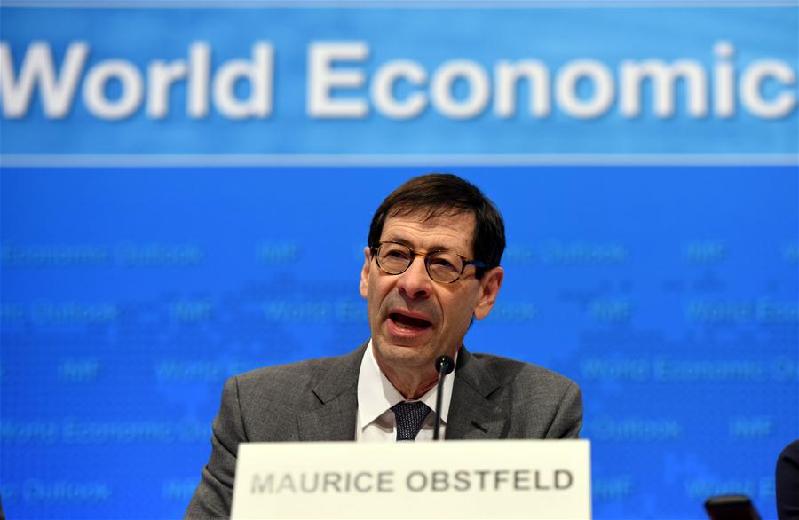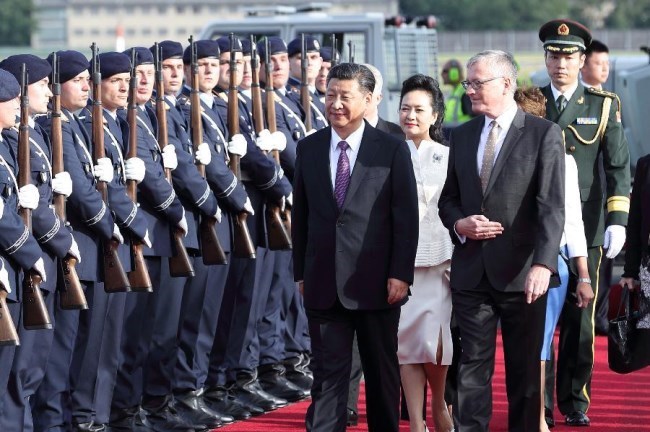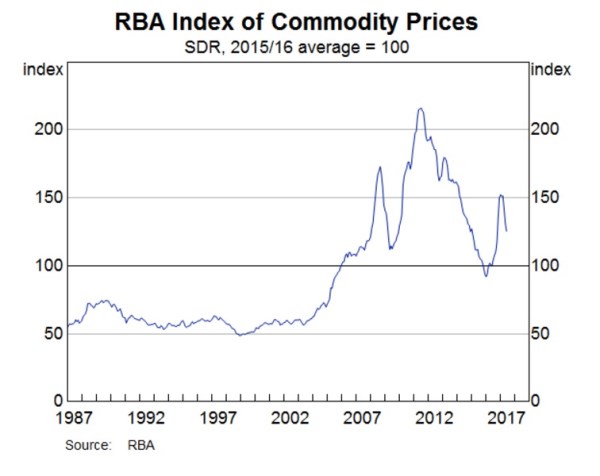
Maurice Obstfeld, chief economist at the International Monetary Fund (IMF), attends a press briefing at the IMF headquarters in Washington D.C., the United States, on April 18, 2017. The International Monetary Fund (IMF) on Tuesday raised its forecast for global economic growth in 2017, saying buoyant financial markets and a long-awaited cyclical recovery in manufacturing and trade supported the improved outlook. (Xinhua/Yin Bogu)
WASHINGTON, April 18 (Xinhua) -- The International Monetary Fund (IMF) on Tuesday raised its forecast for global economic growth in 2017, saying buoyant financial markets and a long-awaited cyclical recovery in manufacturing and trade supported the improved outlook.
In its latest World Economic Outlook, the IMF forecast the global economy will grow by 3.5 percent in 2017, an acceleration from the 3.1 percent growth last year and an upgrade of 0.1 percentage points from its January projection. It kept the 2018 forecast for global economic growth unchanged at 3.6 percent.
"Our new projection for 2017 is marginally higher than what we expected in our last update. This improvement comes primarily from good economic news for Europe and Asia, and within Asia, notably for China and Japan," IMF chief economist Maurice Obstfeld told a press conference on Tuesday.
The IMF expected the advanced economies to grow by 2 percent this year, 0.1 percentage point higher than its forecast in January. It maintained the 2018 growth forecast for those economies unchanged at 2 percent.
Among the developed economies, the U.S. economy is expected to grow by 2.3 percent in 2017 and 2.5 percent in 2018, the same forecast as that in January; the growth forecast for the euro-zone was raised by 0.1 percentage points to 1.7 percent in 2017; the Japanese economy is expected to grow by 1.2 percent in 2017, 0.4 percentage points higher than its January forecast, with growth slowing to 0.6 percent in 2018.
The IMF estimated emerging markets and developing economies will grow by 4.5 percent in 2017 and 4.8 percent in 2018, the same forecast as that of January.
But it upgraded China's growth forecast in 2017 and 2018 to 6.6 and 6.2 percent, respectively.
Meanwhile, the IMF continued to warn of the downside risks facing the global economy.
"Risks remain skewed to the downside, however, especially over the medium term, with pervasive uncertainty surrounding policies," said the report.
It warned that inward-looking policies threaten global integration and the cooperative global economic order, a faster-than-expected pace of interest rate hikes in the United States could tighten global financial conditions, and an aggressive rollback of financial regulation could spur excessive risk taking and increase the likelihood of future financial crisis.
"The world economy may be gaining momentum, but we cannot be sure that we are out of the woods," said Obstfeld.
"Avoiding the damage from potential protectionist measures will require a renewed multilateral commitment to support trade, paired with national initiatives that can help workers adversely affected by a range of structural economic transformations including those due to trade," the chief economist said.
He also called on countries to collaborate across a range of problems, such as financial oversight and tax avoidance, in order to ensure growth and stability.






